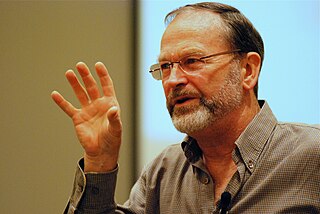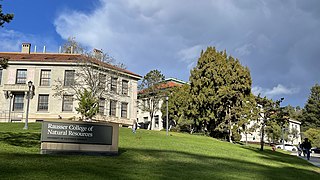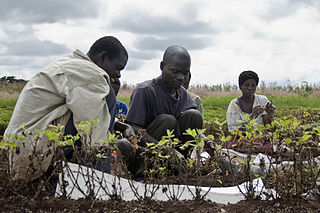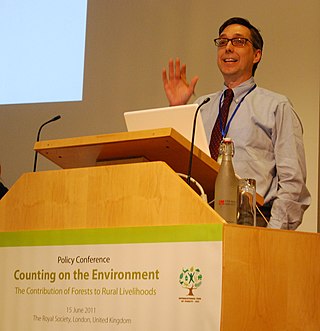Recent Publications - 2018 to 2024 journal articles
1. R. Mukhopadhyay and A. Adelaja. “Predicting Acquirers of US Food and Agribusiness Firms” Agribusiness: An International Journal, November 29, 2023. https://doi.org/10.1002/agr.21876
2. A. Adelaja, J. George, T. Jayne, M. Muyanga, T. Awokuse, S. Liverpool-Tasie and A. Aromolaran. “Stepping-Up: Impacts of armed conflicts on land expansion”, Journal of Agricultural and Applied Economics, vol. 39, November 3, 2023, https://doi.org/10.1017/aae.2023.39.
3. S. Hiablie, D. Uyeh, A. Adelaja, K. Gebremedhin, A. Srivastava, K. Ileleji, M. Gitau, Y. Ha, T. Park. “An outlook on harnessing technological innovative competence in sustainably transforming African agriculture”, Global Challenges, Perspective, No. gch2.202300033R1, August 8, 2023, https://doi.org/10.1002/gch2.202300033.
4. T. Guedegbe, A. Adelaja and J. George. “Endogenous policy responses to COVID-19, resilience factors, and the impacts of the pandemic on farm performance”, World Development, vol. 158, April 6 2023, 106254, https://doi.org/10.1016/j.worlddev.2023.106254
5. *L. S. Liverpool-Tasie, A. S. Nuhu, T. Awokuse, T. Jayne, M. Muyanga, A. Aromolaran and A. Adelaja. “Can medium-scale farms support smallholder commercialisation and improve welfare? Evidence from Nigeria”, Journal of Agricultural Economics, vol74, Issue 1, 48-74, Feb 2023, https://doi.org/10.1111/1477-9552.12487
6. *N. Sunday, R. Kahunde, B. Atwine, A. Adelaja & J. Kappiaruparampil. “How Specific Resilience Pillars Mitigate the Impact of Drought on Food Security: Evidence from Uganda”, Food Security, vol 15, issue 1, February 2023. https://doi.org/10.1007/s12571-022-01313-9
7. A. Aromolaran, A. Obayelu, M. Muyanga, T. Jayne, A. Adelaja, T. Awokuse, O. Ogunmola, and O. Osinowo. “Determinants of farmer’s decision to transit to medium/larger farm through expansion of land area under commercial tree crop plantation in Nigeria”. Forests, Trees, and Livelihoods”, vol. 31, Issue 4, 230-245, October 2, 2022, https://doi.org/10.1080/14728028.2022.2132541.
8. J. George and A. Adelaja. “Armed Conflicts, Forced Displacement and Food Security in Host Communities”, World Development, vol 158, October 2022, 105991. https://doi.org/10.1016/j.worlddev.2022.105991 https://doi.org/10.1016/j.worlddev.2022.105991.
9. M. Olabisi, R. Richardson and A. Adelaja. "The Next Global Crisis: Africa's Renewable Energy Financing Gap", Climate and Development. September 11, 2022. https://doi.org/10.1080/17565529.2022.2113022.
10. A. Adelaja and R. Mukhopadhyay. “Time-to-Completion for Mergers and Acquisitions in the Food and Agri-Business Industry” Agribusiness, An International Journal, Vol 38, Issue 3, January 2022, https://doi.org/10.1002/agr.21734.
11. J. George, A. Adelaja, O. Vaughan and T. Awokuse. “Explaining Transhumance-Related Violence: Fulani Ethnic Militia in Rural Nigeria”, Journal of Rural Studies, vol 89, 2022, January 2022, Pages 275-286, ISSN 0743-0167, https://doi.org/10.1016/j.jrurstud.2021.12.003.
12. A. Adelaja, J. George, L. Fox, K. Fuglie, and T. Jayne. “Shocks, Resilience and Structural Transformation in Sub-Saharan Africa” Sustainability, vol 13, issue 24, 13620, December 2021, https://doi.org/10.3390/su132413620.
13. A. Adelaja and J. George. “Food and Agricultural Security: An Introduction to the Special Issue”, Sustainability, vol 13, no (21), 12129; November 2021, https://doi.org/10.3390/su132112129.
14. J. George, A. Adelaja & T. Awokuse. “The agricultural impacts of armed conflicts: The case of Fulani Militia”, European Review of Agricultural Economics, Volume 48, Issue 3, July 2021, Pages 538–572, https://doi.org/10.1093/erae/jbaa022.
15. J. George and A. Adelaja. “Forced Displacement and Agriculture: Implications for Host Communities”, Sustainability, vol 13, no 5728, May 2021. https://doi.org/10.3390/su13105728
16. J. George, A. Adelaja, T. Awokuse and O. Vaughan. “Terrorist Attacks, Land Resource Competition and Violent Farmer-Herder Conflicts”, Land Use Policy, Vol 102, 10524, March 2021. https://doi.org/10.1016/j.landusepol.2020.105241
17. T. Miyahara and A. Adelaja. “Aging and Economic Growth in Japan: Differential Effects of Multiple Generations”, Journal of Population and Ageing, 2020, September 2020. https://doi.org/10.1007/s12062-020-09307-1.
18. T. Jayne, A. Adelaja & R. Mkandawire. “Africa’s Rapid Economic Transformation”, Welt Ohne Hunger, Vol 20, No. 30, One World, No Hunger, https://www.weltohnehunger.org/full-article/africas-transformation.html., December 2020.
19. A. Adelaja & J. George. “Is Youth Unemployment Related to Domestic Terrorism?”, Perspectives on Terrorism, Vol 14, Issue 5, October 2020.
20. A. Adelaja. “Barriers to National Renewable Energy Policy Adoption: Insights from a Case Study of Nigeria”, Energy Strategy Reviews, Vol 30, July 2020, https://doi.org/10.1016/j.esr.2020.100519
21. T. Jayne, A. Adelaja & R. Mkandawire. “Africa’s Rapid Economic Transformation”, Rural 21: The International Journal of Rural Development, Vol 54, No. 2/2020, May 2020, pp 14-17. https://www.rural21.com/english/archive/2020/02.html.
22. J. George, A. Adelaja & D. Weatherspoon. “Armed Conflict and Food Insecurity: Evidence from Boko Haram’s Attacks”, American Journal of Agricultural Economics, Vol 102, No. 1, January 2020, Published online, August 19. 2019, aaz039, https://doi.org/10.1093/ajae/aaz039.
23. A. Adelaja & J. George. “Terrorism and Land Use in Agriculture”, Land Use Policy, Volume 88, pp 104-116, November 2019, https://doi.org/10.1016/j.landusepol.2019.104116
24. A. Adelaja & J. George. “Grievances, Latent Anger and Unrest in Africa, African Security, Volume 12, Issue 1, 111-140, April 2019.
25. Adelaja & J. George. “Effects of Conflict on Agriculture: Evidence from the Boko Haram Insurgency”, World Development. Volume 117, 184-195, March 2019.
26. Adelaja, J. George, T. Miyahara & E. Tetteh. “Food Insecurity and Terrorism” Applied Economic Perspectives and Policy. 2018, Volume 45, pp 1-19, August 2018.
27. Adelaja & H. Akaeze. “Supply Response, Economic Diversification and Recovery Strategy in the Oil Sector”, Energy Strategy Reviews, Volume 21, pp 111-120, August 2018.
28. Adelaja, A. Labo & E. Penar. “Public Opinion on the Root Causes of Terrorism and Objectives of Terrorists: A Boko Haram Case Study” Perspectives on Terrorism, Vol 12, Issue 3, June 2018.











